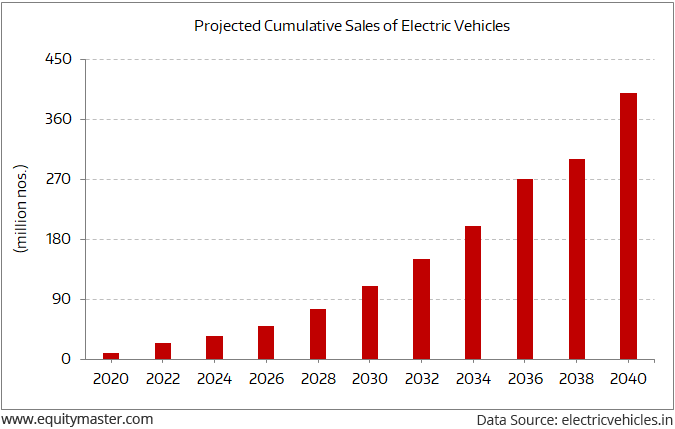Sensex Ends Flat; Automobile And Metal Stocks Witness Buying
Share markets in India witnessed volatile trading activity throughout the day and ended on a flat note.
Sectoral indices ended on a mixed note with stocks in the IT sector and banking sector witnessing selling pressure, while automobile stocks and metal stocks witnessed buying interest.
At the closing bell, the BSE Sensex stood lower by 17 points while the NSE Nifty closed up by 15 points. The BSE Mid Cap index ended the day up by 0.3%, while the BSE Small Cap index ended the day up by 0.8%.
The rupee was trading at 71.31 against the US$.
Speaking of stock markets, as the new year 2020 is about to kickstart, Girish Shetty shares a simple guide on how to improve your stock picking process.
This quick guide will surely help you make better decisions.
Tune in now!
In news from the automobile sector, Tata Motors share price was in focus today.
Shares of the company gained over 4% today after the company bagged an order to supply 500 units of its electric Tigor sedans from a Delhi-based mobility service provider called Prakriti E-Mobility Pvt Ltd.
The vehicle manufacturer will supply 160 electric Tigor cars in the first batch early January where the electric vehicle specific taxi service provider would deploy the fleet on its app-based platform called 'EVERA' in Delhi NCR.
Last month, the company had announced that it bagged order to supply 500 electric cars including 400 units of its Tigor EV and 100 units of electric Nexon to Bangalore-based commercial EV fleet provider Lithium Urban Technologies.
Earlier this month, the company also unveiled its first electric car for personal segment - Nexon EV. The Nexon EV is expected to be priced in the range of Rs 1.5-1.7 million and will offer an 8-year warranty (or up to 160,000 kms, whichever is earlier) on lithium ion battery and electric motor.
Note that shares of Tata Motors have surged in the past three months, gaining more than 50% in October-December quarter.
Reports state that the rally is attributed to better-than-expected September quarter (Q2FY20) earnings, with improvement in the operational performance at Jaguar Land Rover (JLR), its Britain-based luxury vehicle arm.
Tata Motors share price ended the day up by 4.3%.
Speaking of the automobile sector, India's automobile industry is bracing itself for a unique challenge in the first quarter of 2020 when the transition of BS-IV to BS-VI emission norms has to be made at the stroke of midnight on 31 March 2020.
No BS-IV vehicle could be sold from 1 April 2020, which means automakers would have to reduce their inventory on BS-IV models to zero by then.
The exercise is likely to see companies show extra caution in dispatching cars to dealers in the next few months, which may cause a continuation of the decline in wholesale numbers.
However, despite the slowdown in the auto sector, the sales volume of electric vehicles (EVs) are growing at a robust pace.
Sale of Electric Vehicles in India Projected to Go Up 10x in the Next Two Decades

Electric vehicles are very much on their way to invading Indian roads. The threat of disruption in this era is something you cannot ignore.
The recently announced government incentives will give a further boost to EV sales.
The coming one year will be a real test for India's auto companies.
It will also tell us if this slowdown is temporary or if there has been a structural change in the sector.
In our view, companies in the sector adapting their business models to the rapidly changing environment will survive and thrive.
Moving on to news from the banking sector, shares of state-owned banks witnessed selling pressure today as the Reserve Bank of India (RBI) has cautioned that asset quality of scheduled commercial banks may worsen next year owing to changes in the macroeconomic scenario.
Shares of Punjab & Sind Bank fell over 10% intraday, while Corporation Bank, Indian Overseas Bank, and Bank of India fell in the range of 3-5%.
In its latest Financial Stability Report released on Friday, the central bank warned that there remains an inherent risk of "froth"-conditions that precede a market bubble building up in the system due to excess liquidity.
Citing factors such as an increase in slippages and declining credit growth, the central bank in its biannual commentary said bad loans of SCBs as a percentage of total loans is expected to increase to 9.9% by September 2020 from 9.3% in September 2019.
Scheduled commercial banks' (SCBs) credit growth remained subdued at 8.7% year-on-year in September 2019, though private sector banks registered double digit credit growth of 16.5%.
The capital adequacy ratio of banks improved significantly to 15.1% in September 2019 after the recapitalisation of PSBs by the government.
The asset quality of agriculture and services sectors, as measured by their GNPA ratios, deteriorated in September 2019 as compared to March 2019.
We will keep you updated on the latest developments from this space. Stay tuned.
To know what's moving the Indian stock markets today, check out the most recent



